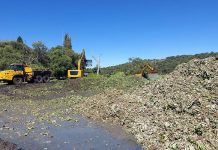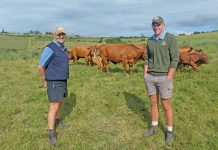
Policy certainty formed the root of successful land reform. This was according to Simba Makoni, who had been the minister of finance and economic development in former President Robert Mugabe of Zimbabwe’s cabinet from 2000 to 2002.
Speaking at the first Nation in Conversation session at Nampo 2018, he said policy determined the rules of the proverbial game, as well as where to go and how to get there.
“However, the rules of the policy game are our collective responsibility. The collective included, for instance, business, civil society and government. It must be done in a positive manner, to avoid the panic and negativity that were hallmarks of land acquisition in Zimbabwe,” Makoni said.
Also speaking at the event, Chris Venter, chairman of Afgri, added that land reform was much more than merely taking land and giving it to someone else. It was folly to merely transfer land without supporting it with the transfer of title deeds.
The debate on land expropriation without compensation in South Africa caused serious uncertainty as there were no clear guidelines. Farmers needed to know what was expected from them.
On a question from panel anchor Theo Venter, Dr. Raphael Karuaihe, a commodity derivatives manager at the Johannesburg Stock Exchange, said the issue of traditional leaders and land also needed to be addressed as part of land reform.
According to him, European civilizations moved away from traditional leadership in the past and prospered. “Maybe the question should be asked whether these civilisations prospered because they moved away from traditional leadership.
South African land belonging to traditional leaders has become such a skewed affair that it perhaps calls for a special indaba to take the matter forwards,” Karuaihe said.
Founder and chief investment officer of the RussellStone Group, Russel du Preez, added that the African continent needed to learn from prosperous regions in the rest of the world, as Africa was obviously not prosperous.
However, the future of the continent could be bright should property rights be allowed. Africans had the option of empowering the poorest of the poor if they made the right decisions.
“With property rights we can move from debt capital to living capital. This is not rocket science. Let’s stop playing the political game,” he said.












